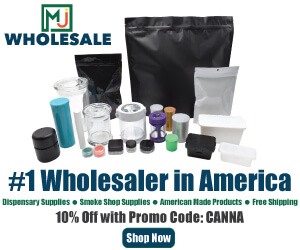| maryldxgpy's Forum Info |
| Joined: |
08-31-2023 |
| Last Visit: |
(Hidden) |
| Total Posts: |
0 (0 posts per day | 0 percent of total posts) |
| Total Threads: |
0 (0 threads per day | 0 percent of total threads) |
| Time Spent Online: |
(Hidden) |
|
|
| Additional Info About maryldxgpy |
| Bio: |
Breaking Free: A Comprehensive Guide To Drug And Alcohol Detox
Are you ready to break free from the chains of addiction? If so, you're in the right place. Welcome to our comprehensive guide on drug and alcohol detox—an essential step towards reclaiming your life and achieving lasting sobriety.
Detoxification, or detox for short, is a vital process that allows your body to rid itself of harmful substances while preparing for long-term recovery. It's not an easy journey, but with the proper knowledge and support, it can be a transformative experience that opens doors to a brighter future.
In this blog post, we'll delve deep into the world of detox—exploring what it entails, why it's crucial for overcoming addiction, different types of detoxes available, how to choose the best one for you, and finally, walking you through the entire detox process.
So buckle up as we embark on this empowering journey together. Let's break free from addiction once and for all!
What is detox?
Detox, short for detoxification, is removing harmful substances from your body. Regarding drug and alcohol addiction, detoxification is the first step toward recovery. It involves allowing your body to eliminate these toxins from substance abuse naturally.
During this process, you may experience withdrawal symptoms as your body adjusts to functioning without the addictive substance. These symptoms can vary in intensity depending on factors like the type of substance used and the duration of addiction.
Detox serves as a way to cleanse both your physical and mental state, preparing you for further treatment and therapy. It provides a solid foundation upon which lasting sobriety can be built.
It's important to note that detox alone does not guarantee long-term recovery from addiction. However, it is an essential starting point that sets the stage for subsequent interventions such as counseling, support groups, or rehabilitation programs.
Detox is about giving yourself a fresh start—one where you can break free from dependency and regain control over your life.
Why is detox necessary?
Detoxification, commonly known as detox, is a vital first step to recovery from drug and alcohol addiction. It is a process that helps individuals cleanse their bodies of harmful substances and rid themselves of physical dependence. But why is detox so necessary?
Detox is crucial because it allows the body to eliminate toxins accumulated from substance abuse. These toxins can harm various organs and systems in the body, leading to serious health complications if not addressed.
Detox helps manage withdrawal symptoms when an individual stops using drugs or alcohol. Withdrawal symptoms can range from mild discomfort to life-threatening conditions, making professional supervision during this phase essential for safety.
Moreover, undergoing detox in a controlled environment provides individuals with support and guidance from medical professionals specializing in addiction treatment. This support system plays a significant role in handling cravings, managing emotional distress, and providing necessary medications when needed.
Lastly, but importantly, detox sets the stage for long-term recovery by breaking the cycle of addiction. By eliminating drugs or alcohol from the body and addressing physical dependence early on, individuals can focus on addressing underlying psychological factors contributing to their addictive behaviors.
In conclusion, detoxification is a critical foundation for overcoming drug and alcohol addiction by helping individuals cleanse their bodies while managing withdrawal symptoms under professional care. It paves the way toward lasting recovery by breaking free from physical dependence and psychological factors driving addictive behaviors.
What are the different types of detoxes?
Regarding drug and alcohol detox, several different types of approaches can be taken. Each type of detox is designed to address specific needs and considerations, ensuring that individuals receive the most appropriate care for their unique circumstances.
One common type of detox is medical detox, which involves closely monitoring an individual's withdrawal symptoms and providing medications to alleviate discomfort and manage potential complications. This detox type often occurs in a specialized facility or hospital setting where medical professionals can provide round-the-clock support.
Another option is social detox, which focuses on providing emotional support and counseling during withdrawal. This may include group therapy sessions, individual counseling, and other forms of supportive care. Social detox programs are often a good fit for individuals with a robust support system but may not require intensive medical intervention.
Holistic detox approaches consider the whole person - mind, body, and spirit - by incorporating alternative therapies such as acupuncture, yoga, meditation, or nutritional counseling. These modalities aim to promote overall well-being while addressing addiction-related issues.
Outpatient detox allows individuals to receive treatment while still living at home. This program typically involves regular check-ins with healthcare providers who monitor progress and adjust treatment plans as needed.
Choosing the correct type of detox depends on various factors, including the severity of addiction, physical health status, and personal preferences. It's essential to consult with healthcare professionals or addiction specialists who can help determine the most suitable approach for each situation.
Remember: there isn't a one-size-fits-all solution for drug and alcohol detox. What works for one person may not work for another. Understanding the different types available and seeking professional guidance when making treatment options will increase your chances of success on your journey toward recovery.
The Detox Process
Embarking on a drug and alcohol detox journey can be challenging, but it is crucial to breaking free from addiction. The detox process varies depending on factors such as the substance used, the use duration, and individual health considerations. However, there are some general steps involved in most detox programs.
1. Evaluation: Before starting the detoxification process, medical professionals will evaluate to assess your physical and mental health. They will gather information about your substance abuse history any co-occurring disorders or medical conditions you may have, and determine if any potential complications need to be addressed during detox.
2. Stabilization: The stabilization phase begins once the evaluation is complete and a treatment plan has been developed specifically for you. This phase involves preparing your body and mind for withdrawal by gradually reducing substance use or using medication-assisted treatment (MAT) to help manage cravings and minimize withdrawal symptoms.
3. Medical Monitoring: Medical staff closely monitor your vital signs and overall well-being throughout the detox process to ensure safety and provide necessary interventions if complications arise.
4. Counseling Support: In addition to medical support during detoxification, counseling is vital in helping individuals address underlying issues related to their addiction. Group therapy sessions provide peer support, while individual counseling helps identify triggers for substance abuse behaviors.
5. Aftercare Planning: Detox is just one component of recovery; it sets the foundation for ongoing treatment and long-term sobriety success. As part of your comprehensive care plan, aftercare planning ensures you can access continued therapy options such as outpatient programs or sober living arrangements. https://southshoresdetox.com/ |
| Gender: |
Male |
|





